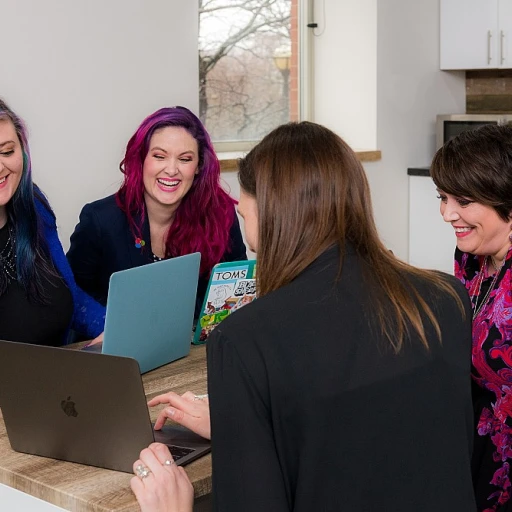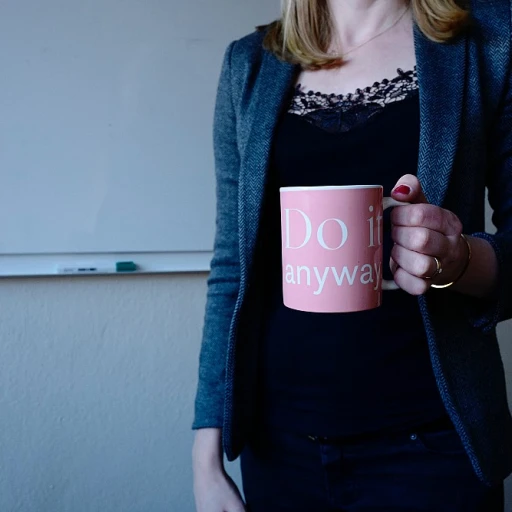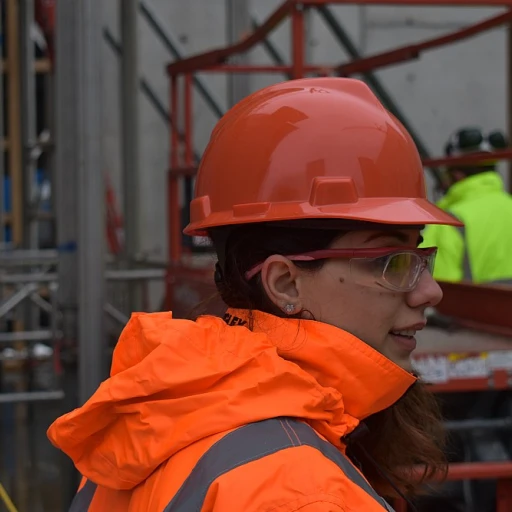
Understanding the Importance of Critical Thinking in Hiring
Recognizing the Necessity of Critical Thinking in Recruitment
The hiring landscape is constantly evolving, and with it, the demand for critical thinking skills in candidates has become increasingly apparent. In modern workplaces, where team dynamics and problem-solving tasks are prevalent, employees who possess strong critical analysis and decision-making capabilities stand out. They not only approach complex problems with a clear-eyed view but also design effective solutions, ultimately contributing to the team's success.
Critical thinking is not just a buzzword; it represents a candidate ability that can elevate the quality of decisions made under pressure. In an interview setting, it becomes essential to ascertain how well a candidate can think critically. Employing interview questions centered around this skill provides insights into their thought processes.
Integrating these thinking skills assessments into your hiring process can transform how you evaluate potential hires. By probing deeper into how candidates solve problems and make data-driven decisions, you're not only hiring for the present but also investing in a workforce equipped for future challenges.
Utilizing well-crafted questions allows hiring managers to identify those who can dissect and evaluate situations effectively. Furthermore, observing how a candidate describes example time scenarios where they've applied critical thinking can reveal much about their problem-solving acumen and lessons learned.
Incorporating an approach that focuses on thinking evaluate techniques ensures that you are not just hiring based on experience or qualifications but also assessing the potential for growth and ability critically analyzing tasks. Thus, it's crucial to understand these dynamics when bolstering your hiring strategies. For more on exploring employment forms and their impact on sourcing, you might want to check this resource.
Identifying Key Traits of Critical Thinkers
Recognizing Critical Thinkers in Recruitment
To craft effective interviews, it's essential to identify the key traits that define critical thinkers. Recognizing these attributes can guide recruiters in formulating questions that assess an interviewee's analytical prowess. Firstly, candidates exhibiting strong critical thinking abilities are typically adept at identifying, analyzing, and solving complex problems efficiently. They demonstrate a capacity for decision making that is both data-driven and rationale-based. An example might be a candidate's ability to describe a time when they tackled a challenging issue successfully. These scenarios showcase their problem solving process and the critical analysis skills they employ. Moreover, a proficient critical thinker often evaluates evidence and supports decisions with sound reasoning. This competency can be assessed in interviews by posing questions that require candidates to think and reflect on past decisions or describe times when they collaborated with team members for problem solving. To seamlessly integrate critical thinking evaluation into your hiring strategy, recognizing these qualities is paramount. It not only aids in designing thoughtful interview questions but also in selecting candidates whose thinking skills align with the role’s needs. For further insights into developing such recruitment strategies, visit Mastering the Art of Human Resources.Designing Questions to Assess Critical Thinking
Crafting Questions to Reveal Critical Thinking Skills
Designing questions that effectively assess a candidate's critical thinking ability is crucial in the interview process. These questions should challenge candidates to demonstrate their problem-solving skills, decision-making capabilities, and ability to approach complex problems. Here are some strategies to consider:
- Focus on Real-World Scenarios: Ask candidates to describe a time when they faced a complex problem. This helps evaluate their ability to apply critical thinking in practical situations. For example, "Can you describe a time when you had to make a difficult decision with limited information?"
- Encourage Reflection: Questions that prompt candidates to reflect on past experiences can reveal their critical analysis skills. Consider asking, "What lessons learned from a past project influenced your decision-making process?"
- Assess Problem-Solving Approach: Pose questions that require candidates to outline their approach to solving a problem. This can include asking, "How would you approach a situation where team members disagree on a solution?"
- Evaluate Data-Driven Decisions: Inquire about how candidates use evidence to support their decisions. A question like, "Can you provide an example of a time when data influenced your decision?" can be insightful.
By integrating these types of questions into your interviews, you can better measure critical thinking skills and assess how candidates might handle challenges in your organization. For more insights on adapting your hiring process to include these assessments, consider exploring navigating change management in e-procurement.
Examples of Critical Thinking Interview Questions
Examples of Thought-Provoking Interview Queries
Crafting compelling interview questions is essential to delve into a candidate's critical thinking skills. These questions should be designed to evaluate the candidate's ability to analyze situations, solve complex problems, and make informed decisions. Here are some carefully structured examples you might consider:- Describe a time when you faced a complex problem at work. What approach did you take to solve it? This question allows you to assess the candidate's problem-solving ability and their methodical approach in dealing with challenges.
- How do you ensure your decisions are data-driven? Give an example time you relied on data to make a decision. With this question, you can evaluate candidates’ reliance on evidence to support their decision-making processes.
- Can you describe an instance where you had to make a quick decision with limited information? What was the outcome? Here, you're assessing how well a candidate can operate under pressure and uncertainty, a common occurrence in fast-paced work environments.
- Share a situation where you had to work with team members to solve a problem. How did you integrate their feedback into your decision? This will measure critical thinking in a collaborative setting, highlighting their ability to synthesize diverse inputs into a cohesive action plan.
- Reflect on a decision you made that was not successful. What lessons learned influenced your future decision-making processes? An important interview question to gauge a candidate's capacity for self-evaluation and their ability to learn from mistakes and adapt.
Evaluating Responses: What to Look For
Evaluating Responses to Identify Key Critical Thinking Abilities
Assessing candidates during an interview requires a keen eye for understanding how they process and respond to critical thinking questions. The candidate's ability to deliver thoughtful and effective answers can reveal much about their critical thinking skills. Here's what you should consider when evaluating their responses:- Complex Problem Solving: Observe how the candidate approaches complex problems. Are they able to break down the problem effectively and identify fundamental components? Their ability to simplify and tackle the problem in manageable parts often demonstrates strong problem-solving skills.
- Decision Making Process: Pay attention to the decision-making process they describe. Do they rely on evidence-supported data and logical reasoning? Candidates who employ a structured approach to making decisions, considering various options and potential outcomes, tend to excel in critical thinking.
- Example Time and Specificity: Listen for specific examples or times when the candidate applied their thinking skills. These narratives should illustrate their ability to handle real-world scenarios and demonstrate critical analysis in past situations. Candidates who provide detailed accounts with clear outcomes show that they have practiced these skills effectively.
- Team Interaction and Approach: Evaluate how they describe their interactions with team members during shared projects. A reflective candidate often discusses lessons learned and how they contributed to the team's success, showing a willingness to learn and adapt their thinking processes in collaborative environments.
- Innovative Solutions and Adaptability: Candidates who think critically often offer innovative solutions to problems and display adaptability in changing circumstances. Consider their ability to pivot and rethink their approach when faced with unexpected obstacles or evolving situations.













